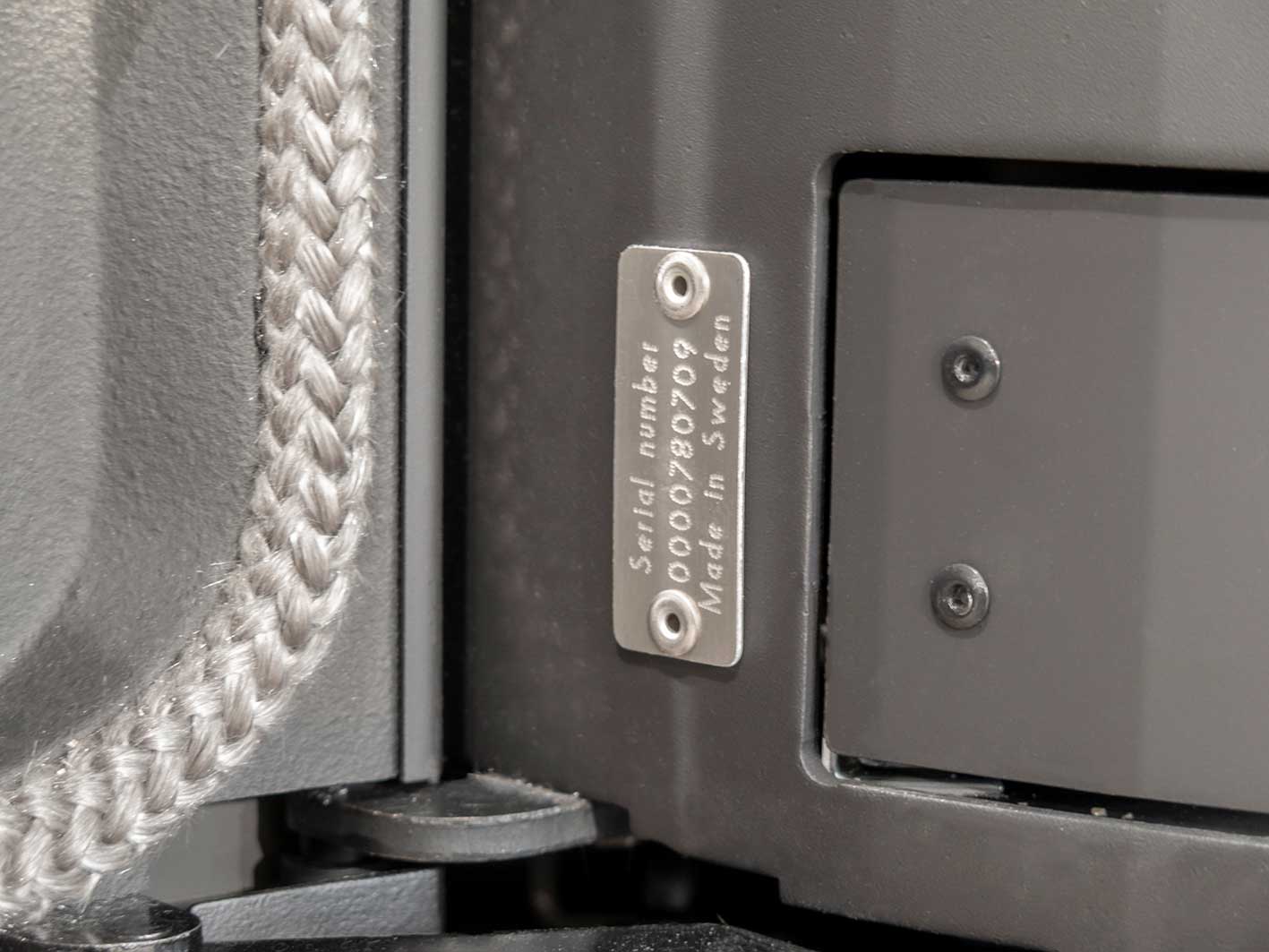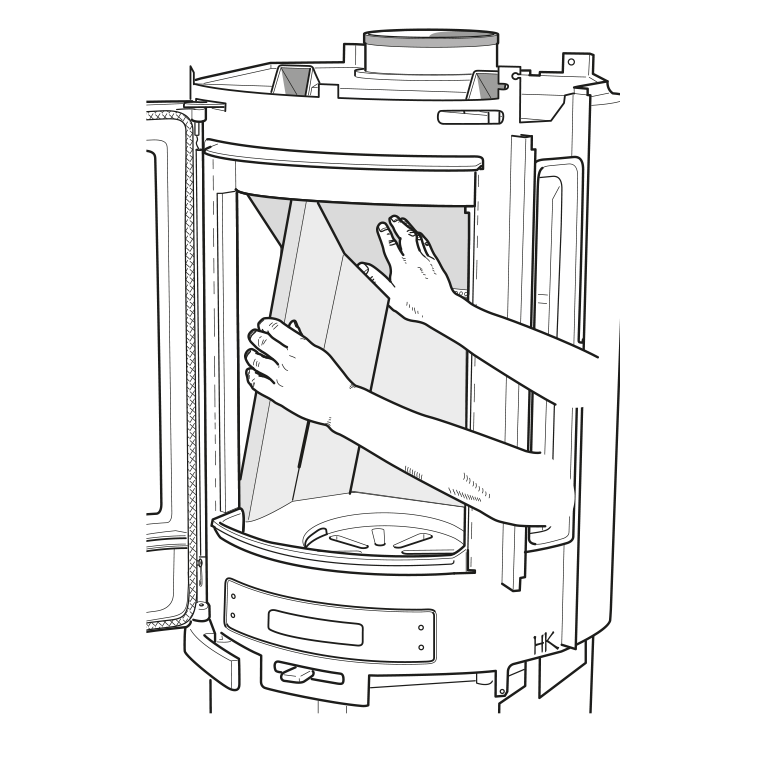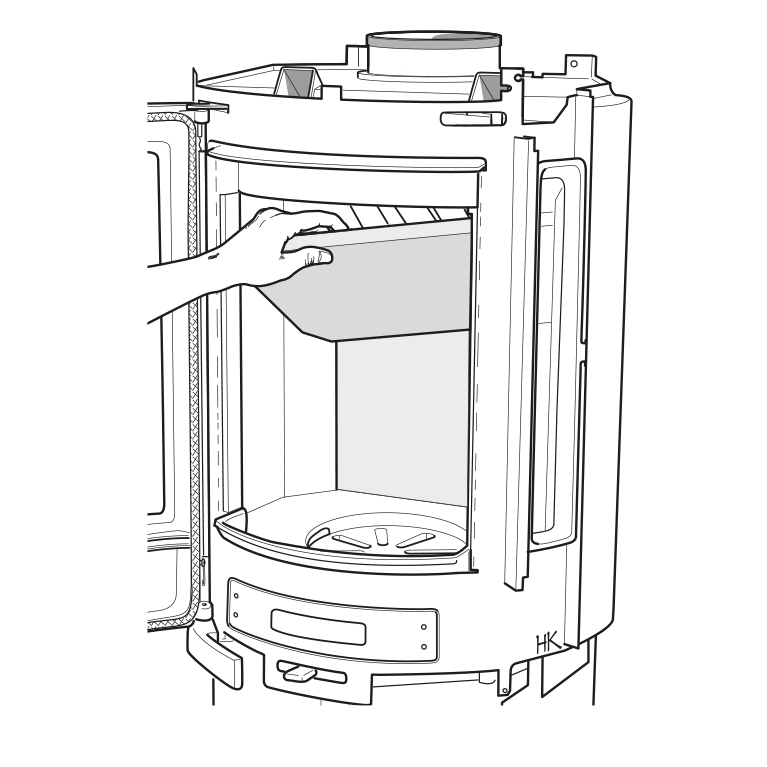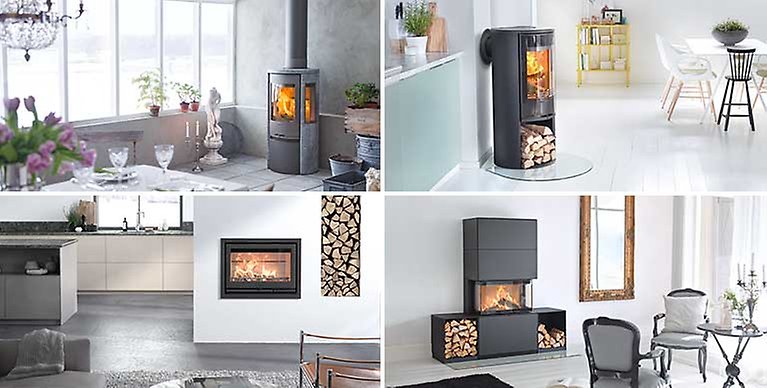Antworten auf häufige Fragen
Are Contura stoves approved according to the new rules?
Yes, all Contura products in our current range are approved. Contura Stoves already comply with the new Ecodesign standards that were introduced in 2022.
Can I burn coal in a wood stove?
The short answer to if you can burn coal in your wood stove is no, as hinted to by the name.
The reason for this is that wood burning stoves are not designed to be burning as hot as multi-fuel stoves which, in turn, will damage your wood stove.
Can I buy a wood-burning stove directly from Contura?
The short answer is no, Conturas wood-burning stoves, fireplaces and accessories are not sold directly through Contura. All the sales of Contura Stoves are made via our retailers.
Find your nearest Contura stove retailer here.
How to find the serial number of your stove?
Contura stoves are available in a variety of shapes and sizes. We explain how to find the serial number of your stove from Contura.
Freestanding stoves
On our freestanding stoves you can usually find the serial number around the ash tray on the left side. On some models, you may need to pull out the ash tray a little to find the serial numberFireplace inserts
To find the serial number of our insert cassettes, you need to open the lid of the insert and there you will find the serial number on the left side. When it comes to smaller inserts such as the Contura i4, you may need to pull out the ash tray to make the serial number visible.
On our larger cassettes, such as the Contura i61, you first need to lift the cover to reveal the serial number on the right side of the insert.
Do I need a build permit to install a stove?
Before installing a stove or erecting a chimney it is necessary for you to make a building application permission to your local authority. Please refer to supplementary instructions or ask your local authority for advice regarding building regulations.
FINAL INSPECTION OF THE INSTALLATION
It is extremely important that the installation is inspected by an authorised chimney sweep before the stove is used. Also read the ”Lighting instructions”, before lighting for the first time.How can I make a complaint about a faulty product?
If you would like to report a product complaint, please contact the dealer where you purchased the product.
How do I replace the fire bricks (vermiculite) on my stove?
In our stoves there is a type of "yellow bricks" mounted on the sides and in the top of the combustion chamber. The fire bricks are are called vermiculite and they insulate the stove and ensure that it can keep warm. The bricks are usually easy to replace and you can buy new ones from your local dealer.
WHEN SHOULD I REPLACE THE FIRE BRICKS?
The fire bricks are a consumable and the lifespan varies depending on how much you fire and if you bump into the bricks with firewood at insertion. The lifespan of a wood stove would diminish immensely without protection from the bricks.
Without the fire bricks, the excessive heat of the exterior steel on the wood stove could set fire to combustible objects around the stove. You should replace broken fire bricks immediately with Contura original bricks. Replacing the broken bricks extends the life of your wood stove.
HOW TO REMOVE THE FIRE BRICKS

Lift the smoke baffle with one hand whilst removing the sides.
Lift down the smoke baffle and then remove the remaining pieces.
How long is the warranty on the stove?
Contura solid-fuel stoves are developed and manufactured by NIBE AB. In accordance with these conditions a five-year (5-year) warranty is given, starting from the date of delivery, against defects in materials and manufacturing, with the exception of defects relating to the components described below.
A warranty of only twelve (12) months is given for components in the fire-box (for example, Hearth cladding, cast iron components, baffles, glass and sealing strips), for cladding and surface finishes (for example, tiles, concrete, glass and lacquered metal), and for electrical components.
THE WARRANTY DOES NOT EXTEND TO DEFECTS ARISING AS A RESULT OF THE FACT THAT
- The installation and operating instructions have not been observed;
- The assembly work has not been carried out correctly;
- The Product has been subjected to over-heating caused, for example, by using the wrong
- Type of fuel or excessive amounts of fuel;
- The Product has been connected to a chimney producing a poor draught; for example, a
- Short chimney or a chimney which is not properly sealed;
- The Product has been stored in a damp, unheated environment;
- The Product has been maltreated and has not been maintained in accordance with the
- Instructions provided;
- The defect is the result of normal wear and tear on components that occasionally need replacement;
- Or due to similar circumstances which are not the result of defects in materials or manufacturing.
How often can you fire in your log burner?
How often you can have a fire going in your wood burning stove varies. Both due to how old your log burner or wood stove is but also depending on what wood stove model you have. Contura’s wood stoves and chimneys are designed and tested to withstand continuous operation without any risk of overheating nearby walls or any internal components of the wood stove taking damage.
However, log burners from other manufacturers may have other recommendations, so we recommend that you read about this in the firing instructions for your specific wood stove model
How to clean wood burning stove/glass clean
If you clean the glass regularly, wiping the glass with dry paper will usually be enough. If the soot has been sitting on the glass for a longer period of time we recommend using some sort of cleaning agent or a special soot remover when you wipe it off. Cleaning agents can either be bought at a grocery store or from your local stove dealer. An extra trick for cleaning the glass is to take a damp cloth and dip it in the stove ash. Then proceed to rub the cloth against the glass, the ash will help make the glass sparkling clean again!
The grate and the stoves other cast iron parts in the combustion chamber should be cleaned with a steel brush. From time to time make sure you also clean the space where the ashtray is located, otherwise spillage can prevent the ashtray from being put in place. When it comes to the lacquered parts on your fireplace, wood stove or log burner can be cleaned with a damp cloth, possibly with some washing up liquid. If you, with time, notice scratches or wear on your wood stoves painted parts you can fill that with Contura’s touch-up paint. This can be found at your local stove dealer.
A good reminder for when the ash in the ash box needs to be emptied. Make sure that there are no embers left. The ashes should be stored in a non-combustible container with a cover for at least one week before disposal.
How to light a wood burning stove
To light a wood burning stove we recommend that you put two normal-sized logs at the bottom and then build on with smaller pieces of finely chopped wood above. Then you place the kindling in the center of the wood and light.
After the fire has been lit you can leave the door open with a small gap until the smaller logs have taken off and the flame has a good spread. When the visible flame has disappeared, it is time to put in new firewood.
Always open the door carefully to allow the stove to equalize pressure before opening the door completely. If you wanna find specific firing instructions for your Contura stove, you will find them here.
How to stop a down draft in a wood burning stove
Chimneys rely on pressure to carry the smoke out of your home. The smoke can sometimes be carried back into your home if you haven’t allowed the chimney to heat up properly. To avoid the smoke from coming back into your home you should first light up some newspaper or kindling, which allows the chimney to slowly heat up. As the temperature in the chimney gradually heats up, you can begin to add your logs.
If you still experience a down draft when your fireplace is in use, turn off your exhaust fans. They naturally increase negative pressure by pulling air out of the house, which can cause a down draft. If your damper is warped, you might need to adjust it slightly to get the right airflow. This helps with negative pressure by providing potentially another path for air to enter the house instead of rushing down the chimney.
Ironically, if two or more windows are open, try closing them. A breeze coming through these and crossing the room could also draw a vacuum in the house.
If you live in an old home, it is possible that your chimney might be too short. Short chimneys cannot vent properly, it should at least be three to four feet tall. Soot and burned debris buildup can narrow passageways for the smoke to escape through your flue.
My stove is not burning as it should?
If your stove is not burning as it should it might be due to a variation of different reasons.
Some recommendations is to check if you might be using too little kindling when lighting, or if the wood is too thickly cut. This can lead to the firebox not reaching the correct operating temperature. Incorrect lighting can also lead to poor combustion with heavy sooting and may result in the fire going out when the hatch is shut.
What is output, specified energy and efficiency
OUTPUT
The output is given in kW (kilowatt) and corresponds to the heat given off by the stove at a certain time. The more you burn, the greater the heat output. An electric radiator normally gives off an output of 1 kW. An sauna unit normally gives off a full output of 5 kW.
SPECIFIED ENERGY
If the stove has an output of 4 kW for 10 hours the house has been supplied with an energy volume of 40 kWh (kilowatt hours).
EFFICIENCY
The relationship between the exploited and supplied energy in a system. The higher the level of efficiency (0-100%) the better the stove exploits the supplied energy, in the form of the logs that are burned.
A stove that is wood fired usually has an efficiency of 50-70 %. Most Contura models have levels of efficiency in excess of 70%.
What to put behind a wood burning stove?
Are you not able to place your wood burning stove at least 90cm away from the nearest wall or floor? Then you should consider installing a heat shield. A Heat shield is a panel made out of a heat-resistant material.
The heat shield is to be placed beneath and/or behind your wood burning stove to help protect your walls and floors from potential damage and also decrease the risk of fire.
It also has the property to reflect the heat back to the wood burning stove.
Where can I find declarations of performance?
Declaration of performance is the manufacturer's declaration that the product (wood burning stoves and fireplaces) meets specified properties. The document may be may be required to install a stove or chimney.
Which stove should I buy?
Contura is available in a number of models and sizes. What you should consider is: How large an area can the stove heat? What does the area where the stove is be located look like?
There are different factors that determine the choice of the size of the firebox, the heating capacity as well as the size of the stove itself.
Not sure which log burner or fireplace would best fit your home? Then use Contura's flexible and smart Stove Selector! With the Stove Selector, we recommend a wood-burning stove or fireplace that suits your needs and home, based on a few questions.
It only takes a few minutes, so get started now and find your dream stove today!
Ähnliche Inhalte
Schnelle links



